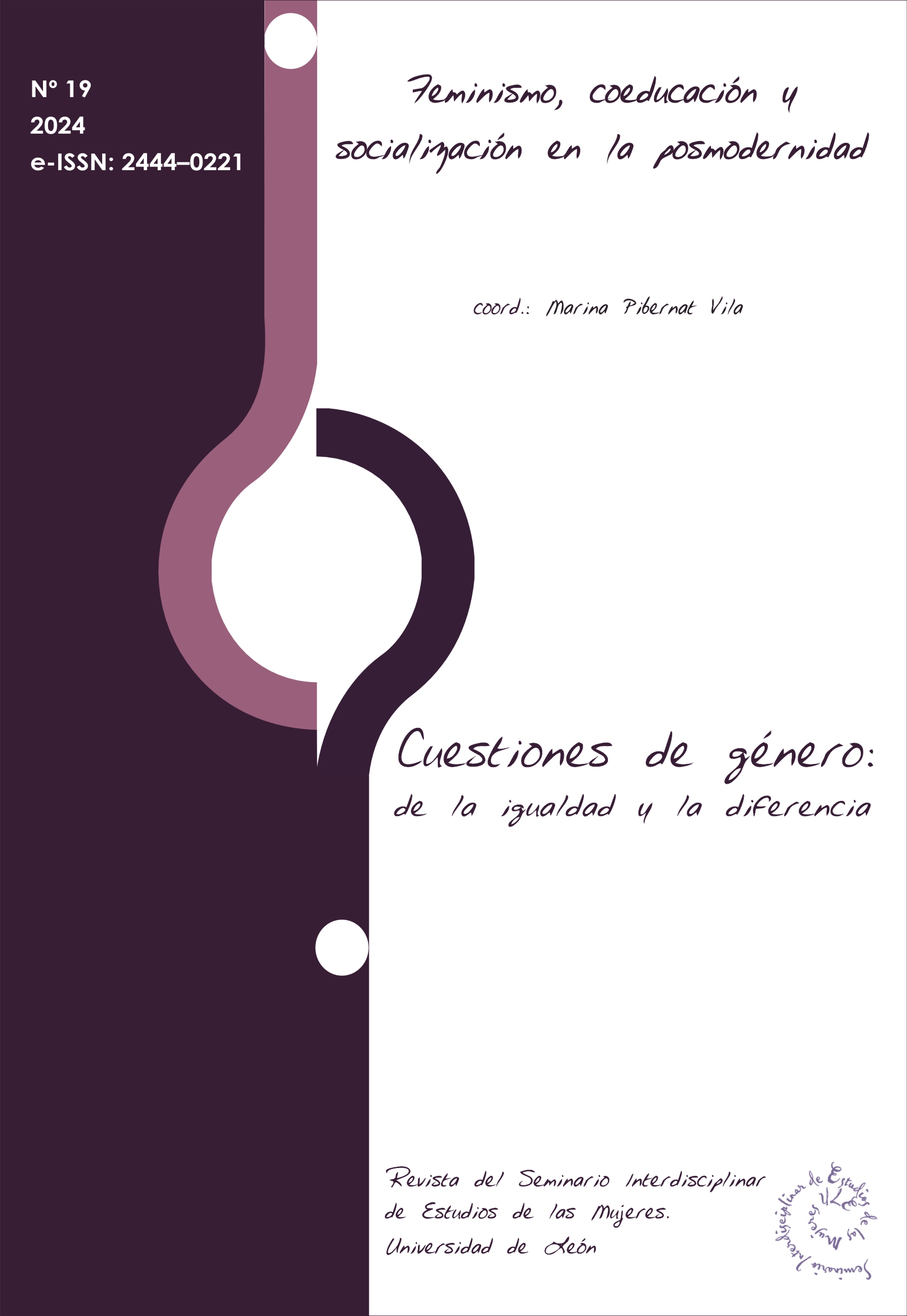Crédits
Interdisciplinary Seminar on Women's Studies at the University of León
aiblag@unileon.es
Digital ISSN: 2444-0221
DOI: 10.18002/cg

The experience of childhood, adolescence and youth have changed a lot in a short time. The education and socialization that girls, boys and young people receive have undergone important transformations that have to do with all aspects of people's lives and the relationships between them. In less than two centuries we have gone from widespread illiteracy, and the exclusion of girls from education, to education segregated by sex, and then to mixed education. In recent decades, feminism has gone further and has focused on the need for non-sexist education capable of transmitting content free of androcentrism and eradicating sexist behavior within educational institutions. Coeducation is the tool created for this purpose. And while we were advancing in the education of girls and boys with increasing equality, the world was also changing enormously in terms of technology and communication, ushering in a new digital era that has modified not only education and academia, but also all processes. communicative, production, distribution, consumption, work and leisure. Girls, boys and young people socialize in a world crossed by digital and audiovisual content from large industries, the Internet, virtual social networks that allow us to create and disseminate our own content, video games, consoles, mobile phones or computers. Thus, just as all of this goes through our world, it also goes through their youthful experiences and their growth processes to become women or men, being a constituent part of their biographies.
In one part of the world, the postmodern context that has marked the turn of the century and millennium has been characterized by a process of dissolution of social and community ties, of collective identities and of the political subjects of social movements. All of this for the benefit of an individualism that fits perfectly with participation on the Internet through personal and non-transferable electronic devices such as the mobile phone, or digital platforms created to build and display a certain image of our individuality. In this new communicative context, new problems have emerged around gender stereotypes associated with each of the sexes, modifying and expanding in the context of the digital and image market. This has affected the socialization of girls, boys and young people, and also their relationships outside and inside the classroom, education and co-education.
This issue of the Cuestiones de Género journal starts with a Guest Article from the Feminist Teachers for Coeducation association (DoFemCo), a privileged contribution made both from current teaching practice and from its research. The Monograph of this nineteenth issue of the journal addresses, through its twelve articles, various aspects of coeducation and socialization between current childhood and youth in relation to equality and inequality between the sexes, both within the classrooms. as in their participation in the digital sphere and their consumption of audiovisual products. The About section, a novelty presented by the journal this year, focuses on the impact that the very concept of “sex” has come to be conceived no longer as an immutable fact given by nature, but as an identity that is can choose and "perform", as well as on other issues related to the new forms of sexual inequality that we face as a society.
The Open Tribune, section brings together eighteen works that address various issues of great relevance for women, in a transatlantic dialogue between Spain, Chile, Brazil, Uruguay, Colombia and Argentina. These issues include the socialization and struggles of women in rural areas, various aspects of gender violence, communication, women's political practice, references of feminist theory and youth literature, or intersectionality. Finally, five reviews of recent works close this issue of the Cuestiones de Género journal.
Coord.: Marina Pibernat Vila.
Number of articles received: 63.
Number of accepted articles: 32.
Crédits
Interdisciplinary Seminar on Women's Studies at the University of León
aiblag@unileon.es
Digital ISSN: 2444-0221
DOI: 10.18002/cg
Contact:
Department of Psychology, Sociology and Philosophy. Education Faculty. 24071 - León - Spain. Telephone: 987291860. E-mail: cuestionesdegenero@unileon.es
Journal Director:
Ana Isabel Blanco García
Mobile: 625570546. Email: aiblag@unileon.es
e-I.S.S.N. 2444-0221 - Legal Deposit: LE-1039-2005.
Cover design: INDOS (Images copyright ©INDOS, S. L. and its licensors).
Design of the logo of the ULE Interdisciplinary Seminar on Women's Studies: Teresa Serrano León.
Servicio de Publicaciones. Universidad de León.
 Edificio de Servicios Campus de Vegazana s/n E24071 – LEÓN (España)
Edificio de Servicios Campus de Vegazana s/n E24071 – LEÓN (España)
 987 29 11 66
987 29 11 66
 987 29 19 36
987 29 19 36
 publicaciones@unileon.es
publicaciones@unileon.es


